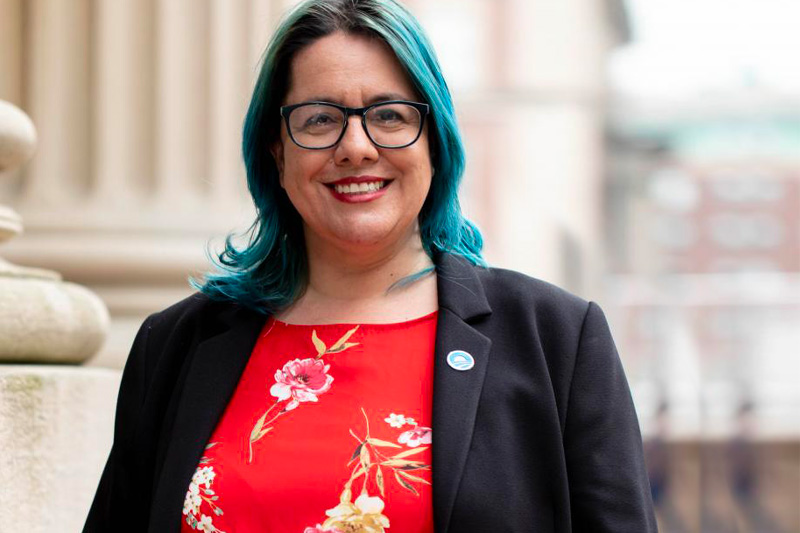

Cartagena-based social innovator, activist, and public servant Ana María González Forero discovered the power of data science during a bootcamp for Obama Foundation Scholars.
The Data Science Institute (DSI) at Columbia University collaborated with Columbia World Projects to facilitate an immersive, hands-on workshop to help Obama Scholars integrate data-driven methods into their social impact projects. González Forero opted to leverage data from Fundación por la Educación Multidimensional, the nonprofit organization she cofounded, for the experience.
“It totally clicked with me,“ González Forero recalled. “And when I saw how the data visualizations provided insights about my organization and my work, I realized I needed to keep the connection with DSI, that they would become a key resource.”
When she returned to Colombia, González Forero joined Cartagena city government with her newfound understanding of and sensitivity to the power of data and data science, but she quickly realized her hometown didn’t have much data with which to work.
After Hurricane Iota flooded nearly 70% of Cartagena in November 2020, González Forero piloted a smartphone-based field data collection strategy using open source tools provided by KoBoToolbox to collect data from 5,000 households in vulnerable areas. She also reached out to DSI’s Data for Good Scholars program to facilitate the analysis of her team’s post-Iota data and multiple data sources—census, health, pension, geospatial, etc.—for insights into the characteristics and needs of thousands of poverty-stricken Cartagenans.
Data For Good Scholars are student volunteers who partner with organizations and individuals working for the social good whose projects have developed a need for data science expertise. Columbia students learn a) how data science is practiced beyond their coursework, and b) how to collaborate effectively with people for whom data science is outside of their expertise.
Through the Cartagena partnership, Data for Good Scholars provide data science skills and insights while González Forero’s team provides language, translation, and context.
Statistics graduate student and Data for Good Scholar Huansong “Spark” Li works with cluster analysis and multinomial logistic regression to construct a connection between Cartagenans’ living environment and geolocation to help improve resource distribution.
“Once we [cleaned] the data, we realized how complex it was,” Li said. “Although the hurricane victims were most concerned with getting relief supplies and other aid, data security and privacy are also important. We needed to find a way to balance both.”
Li and his peers have exceeded the Cartagena team’s expectations.
“The model [DSI] created really works,” González Forero said. “Students get to learn from real world data, and their partners get real help. It’s an open relationship where you collaboratively determine mutually beneficial goals.”
Li agrees. “Academic data analysis focuses more on the validity of the method. Is there any violation of assumptions? Is the model appropriate to your data? Those are important in this project, but we need to think further. What do the [Cartagenans] want and how can we achieve it step-by-step? It’s more challenging because you have to think beyond the model, but it’s also extremely rewarding.”
Findings from González Forero’s collaboration with Columbia and the Data for Good Scholars have already had a positive impact on Cartagena thanks to Mayor William Dau‘s support. The city was a finalist in Bloomberg Philanthropies’ 2021 Global Mayors Challenge for innovative urban solutions. Data science played a key role in the proposal to use technology and training to empower community actors to be effective first responders in emergencies. The city’s planning office also has a new department—the Observatory of Urban Dynamics—staffed with data scientists capable of continuing this work.
“[The students] don’t even realize how important they’ve been to the city,” González Forero said. “With DSI’s help, my work was able to show [Cartagena] what is possible.”
— Karina Alexanyan, Ph.D.